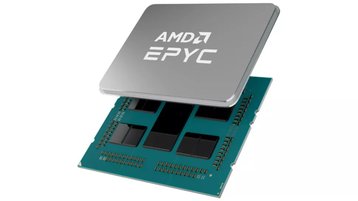SpareRoom, an online UK and US roommate finder service, is migrating its workloads to Google Cloud Platform's C3D virtual machines based on 4th Gen AMD Epyc processors.
According to an AMD case study, the move gives SpareRoom hardware that can serve around 25 percent more requests with a 10 percent reduction time while at a lower cost compared to the Intel N2 Ice Lake offering.
The company was originally an Amazon Web Services (AWS) customer, though switched to Google Cloud because of the "noticeably lower" cost.
The initial strategy with Google Cloud was to emulate SpareRoom's bare metal VMs on Intel Broadwell and Skylake-powered N1, N2, and C2 VMs. This proved too costly, and as SpareRoom expanded into the US the company began switching to Google Cloud VMs powered by 3rd-generation AMD Epyc processors (N2D) and is planning to eventually migrate these onto AMD's 4th Gen chips.
That first move to N2D enabled the platform to serve 74 percent more requests than the Intel N1 with a seven percent less response time. It also served 40 percent more requests than the more expensive Intel N2 Cascade Lake at a similar response time.
The migration required a "simple change" of Terraform code and the rebuilding of relevant servers.
SpareRoom is now planning to move to the 4th Gen AMD offering, C3D, starting in Q2 of 2024.
This decision has been made through an extensive process of "benchmarking," with Dimitrios Kechagias, principal developer at SpareRoom, comparing the C3D instances alongside the Intel-powered Ice Lake web servers.
Kechagias said: “When our current three-year reservation expires this spring, all our N2 servers will switch to C3D, saving us money and making our service faster at the same time."
When the migration to 4th Gen AMD CPUs is expected to be completed has not been shared.
The migration process is being assisted by DoiT, a cloud partner of both Google and AMD.
AMD launched its 4th Generation Epyc Genoa data center chip in November 2022. The chip has 96 cores and clock speeds as high as 4.4GHz, and has support for the DDR5, PCIe 5.0, and Compute Express Link (CXL) standards. Both Google and Microsoft offer VMs based on the chips.







